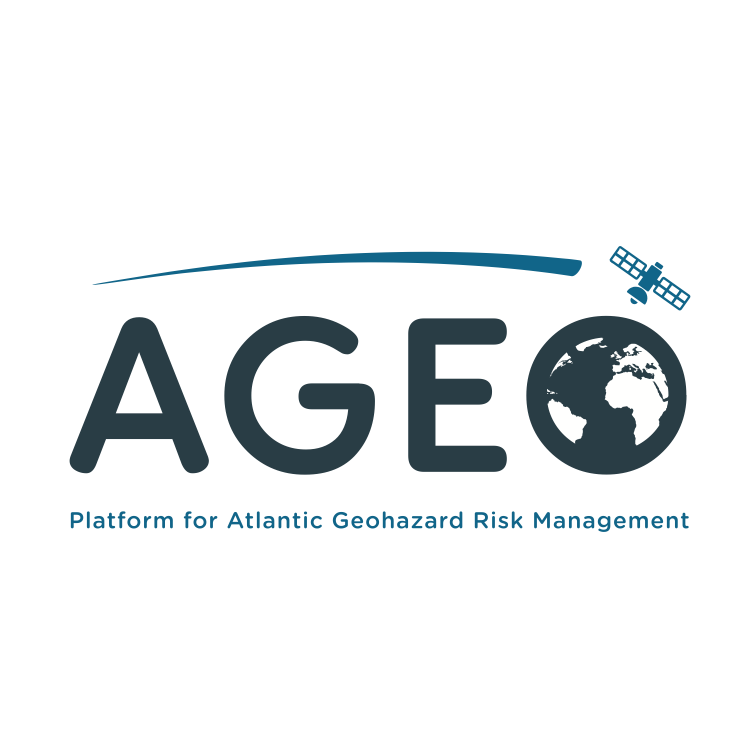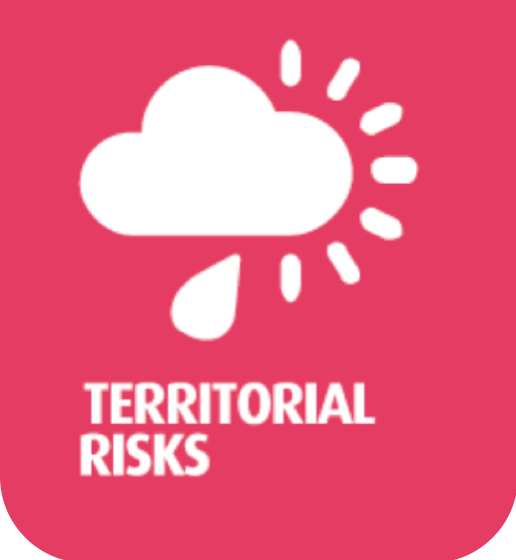AGEO holds 2nd Technical Meeting in Madeira
During the meeting, the Consortium assessed the progress on the AGEO App and AGEO Platform for geohazards, prepared for the Final Conference and visited the pilot sites in Madeira
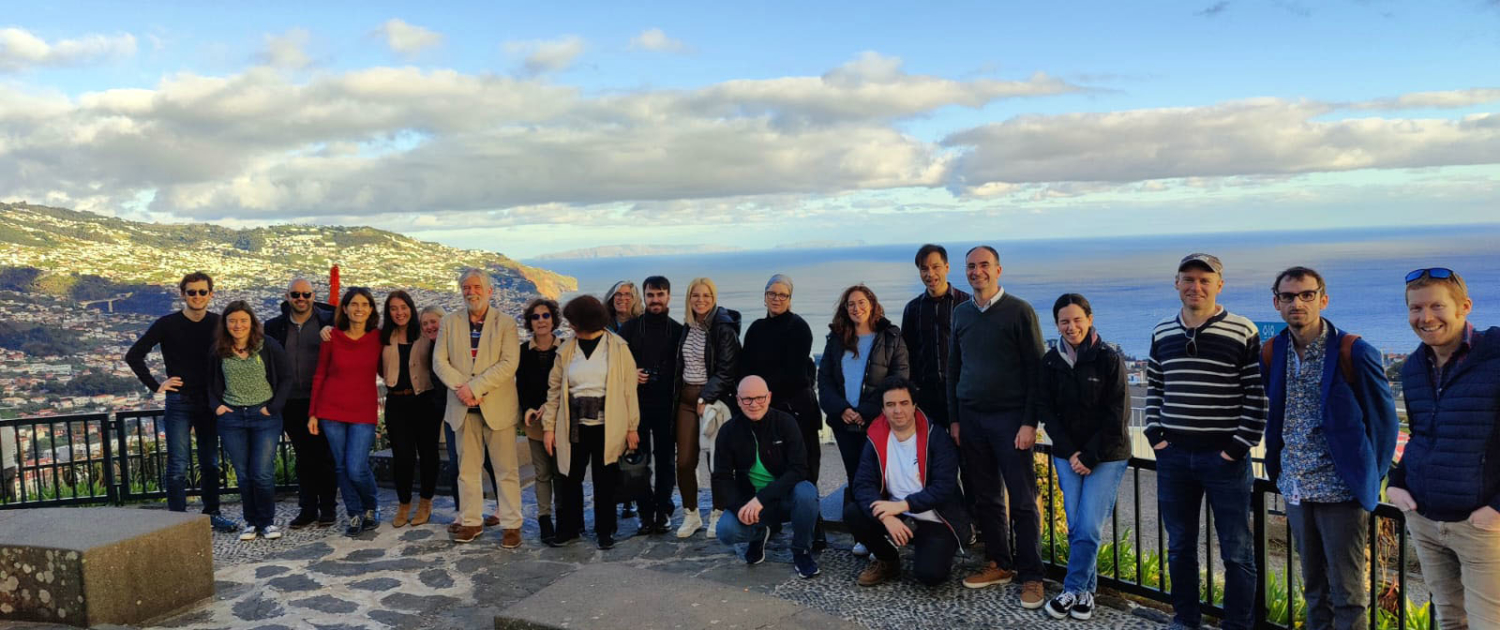
The 2nd Technical Meeting for INTERREG Atlantic Area European funded AGEO Project was held from the 19 to the 21st of January in Madeira. The meeting, hosted by Universidade da Madeira, was celebrated at Edificio da Reitoria in Funchal, with a hybrid format that allowed participants to attend on site and online.
The goals for this meeting were to discuss the new features for the AGEO App and the AGEO Platform, plan the Final Conference that will be organized in Porto in April and debate the exploitation plans for future applications of AGEO.
Summary of the 2nd AGEO Technical Meeting
The event was divided in three days:
- On the 19th, the main topics were the usability of the AGEO App and AGEO Platform and the plans for the Final Conference. During this session, the Consortium filled a questionnaire aimed to improve the usability of these tools.
- On the 20th, the focus of the morning session was on presenting the new features for the AGEO App and the AGEO Platform. In the evening, the Consortium met Bruno Pereira from the Municipality of Funchal and visited the pilot at Escola Básica com Pré-escolar Dr. Eduardo Brazão de Castro. Afterwards, the pilots had one on one review meetings to evaluate the state of the implementation.
- On the 21st, the attendees visited the Madeira Pilot for rockfalls and landslides.
New developments in the AGEO App and the AGEO Platform
One of the main points of the meeting was working on the AGEO App. The app, being developed by a team from University College Dublin led by Eleni Mangina, will allow users to easily report geohazards, including geolocation, pictures and additional information that will be useful to react and prevent. This information will get stored in a database that can be accessed through the new AGEO Platform.
In the AGEO Platform, users will be able to visualize the data from all the validated reports. Furthermore, registered users will receive an API key to retrieve the data stored in the database. This way, the AGEO Platform will be a source of information about geohazards provided by users and validated by experts.
In addition, two surveys were conducted among the attendees to evaluate the state of the AGEO App and the AGEO Platform in terms of usability, features and performance. These results will be used to further improve the service before it is launched.
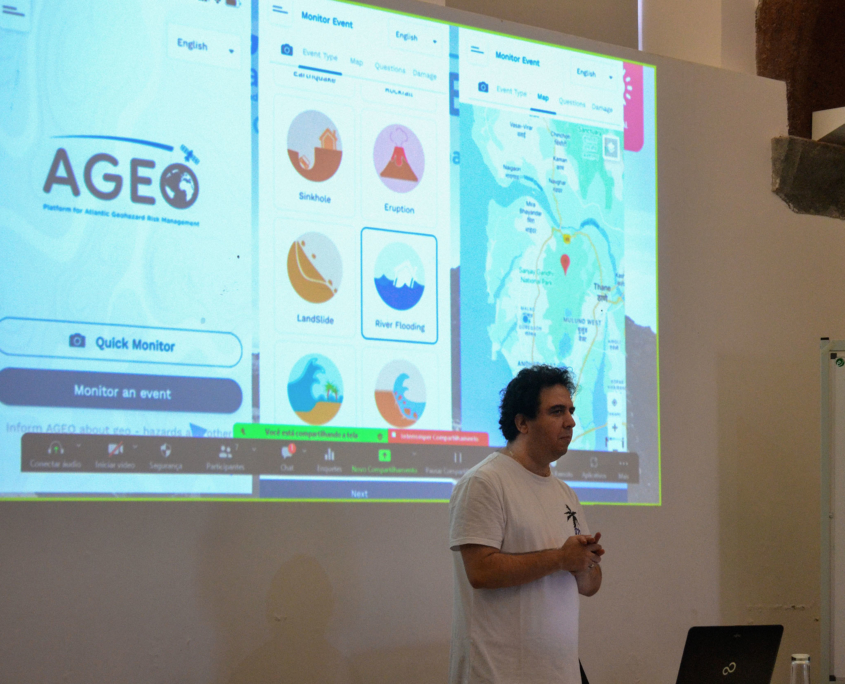
Levent Görgü, from University College Dublin, is one of the developers of the AGEO App and AGEO Platform
AGEO Pilot in Madeira teaches children how to react to geohazards
“We had an earthquake and the children were the first to react”
School principal, about the effectivity of training in Madeira AGEO Pilot
On the second day of the meeting, the Consortium visited Escola Básica com Pré-escolar Dr. Eduardo Brazão de Castro in Funchal, where children are taught how to prevent and react to geohazards with the help of Serviço Regional de Proteção Civil (Madeira Regional Civil Protection Service).
This is a year-round activity in which children learn how to react to potential geohazards. The school is located in an area with steep slopes that increase the risk of floods and landslides, making training essential to prevent and understand how to react. In addition, the children act as a vehicle for information, passing on what they learn about geohazards to their families.
As part of the project, sensors have been installed at the school to detect and collect data about geohazards. The data collected is sent to Universidade da Madeira to be analyzed.
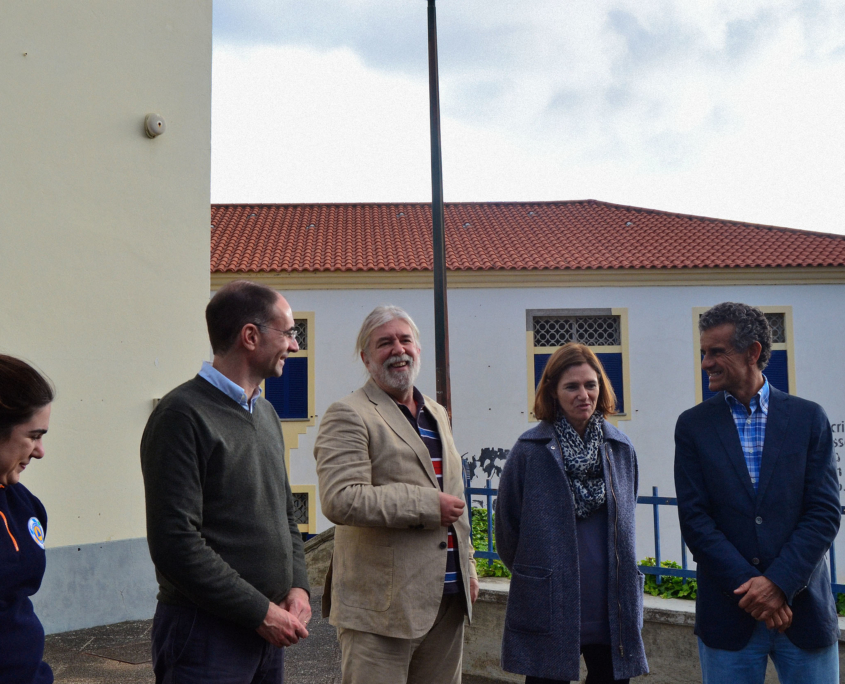
Coordinator Rui Carrilho and Domingos Rodrigues with Dr. Eduardo Brazão de Castro School principal and Serviço Regional de Proteção Civil
AGEO Consortium received by Bruno Pereira at the Municipality of Funchal
The AGEO Consortium was received by Bruno Pereira in a meeting hosted by Municipality of Funchal (Câmara Municipal do Funchal). In this meeting, hosted at Salão Nobre da Câmara, AGEO coordinator Rui Carrilho and professor Domingos Rodrigues, in charge of AGEO Madeira pilot, thanked the Municipality of Funchal for their collaboration in the project, and remarked the importance of prevention and preparedness to geohazards to improve risk management systems.
Afterwards, Bruno Pereira talked with members of each one of the citizen science pilots for geohazard prevention to know more about the work that is being implemented and the progress being made to achieve the objectives of AGEO.
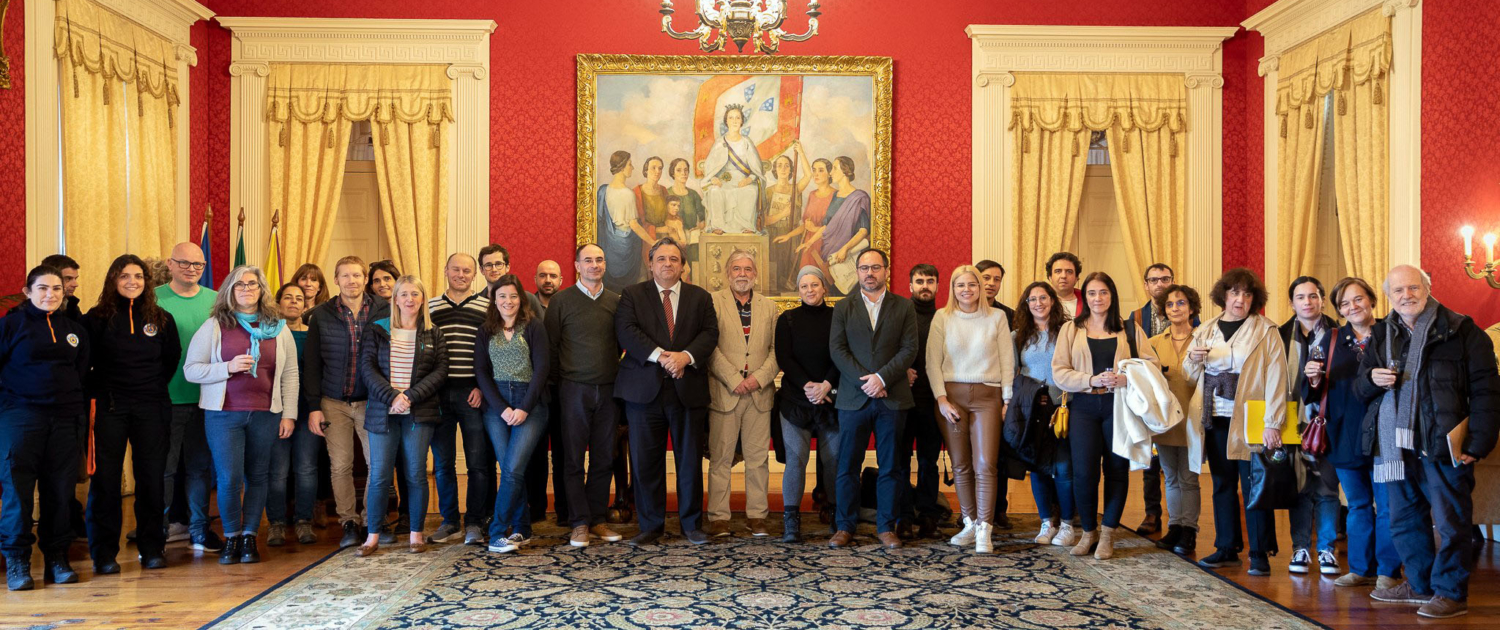
AGEO Consortium meeting with Bruno Pereira at Câmara Municipal do Funchal
The AGEO Final Conference will be held in Lisbon in April
As the AGEO project comes to an end, the Consortium discussed the plans for the Final Conference that will be held in Lisbon. At this event, which marks the culmination of the project, all the work done in terms of engaging with the citizens through the pilots, communication, dissemination, technologies developed and outputs produced during the project will be presented to international stakeholders.
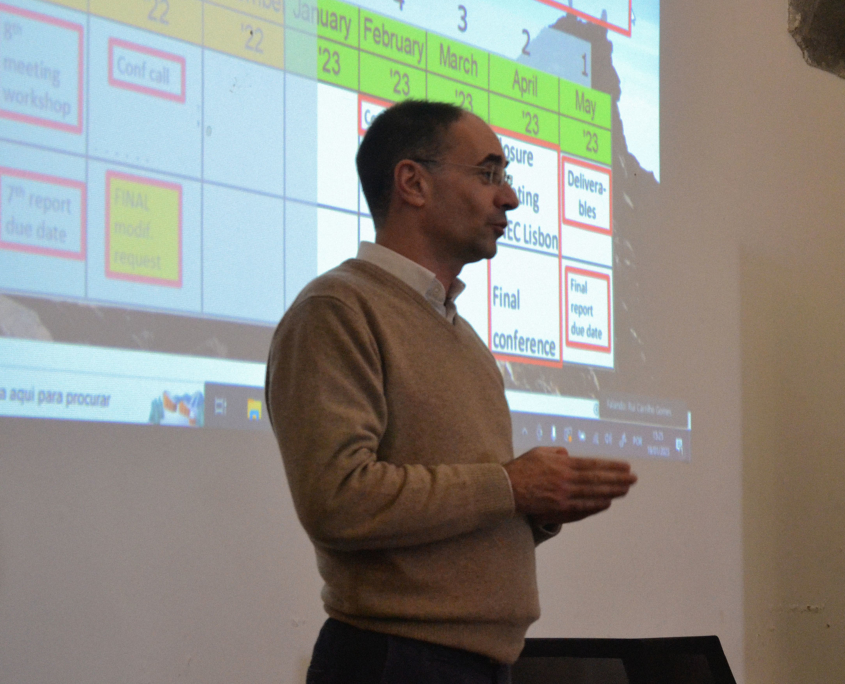
AGEO Coordinator Rui Carrilho during the meeting
